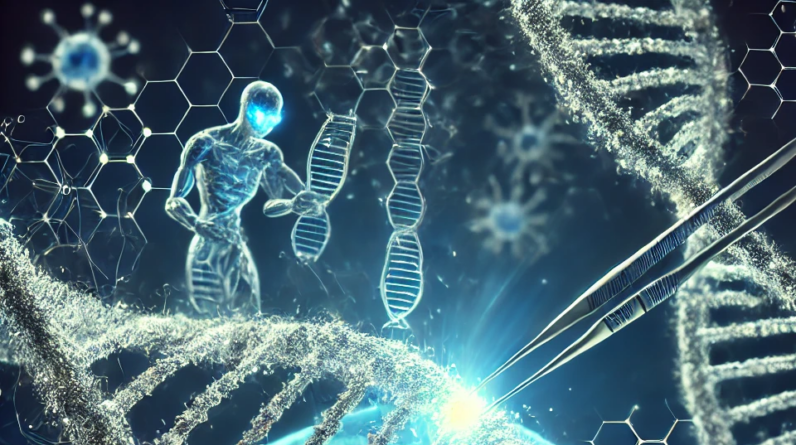
Aging is an inevitable process, but science is uncovering ways to slow its effects. One key factor in longevity is the body’s ability to repair damaged DNA. Our cells constantly face damage from environmental stressors, metabolic byproducts, and replication errors. Fortunately, DNA repair mechanisms work tirelessly to maintain genetic stability, playing a crucial role in determining lifespan and overall health.
Understanding DNA Damage and Its Causes
DNA damage is a natural occurrence caused by various factors:
- Oxidative Stress: Free radicals generated by metabolism can harm DNA.
- Ultraviolet (UV) Radiation: Sun exposure can cause mutations.
- Chemical Exposure: Pollutants and toxins can disrupt DNA integrity.
- Replication Errors: Mistakes during cell division can introduce mutations.
Without proper repair, accumulated DNA damage can lead to cellular dysfunction, aging-related diseases, and ultimately, shorter lifespan.
Key DNA Repair Mechanisms and Their Role in Aging
The human body has evolved several repair systems to counteract DNA damage:
- Base Excision Repair (BER): This mechanism fixes small DNA lesions caused by oxidative stress, preventing mutations that could lead to premature aging.
- Nucleotide Excision Repair (NER): NER removes bulky lesions, such as those caused by UV radiation, reducing the risk of skin cancers and age-related deterioration.
- Mismatch Repair (MMR): Responsible for correcting errors during DNA replication, MMR ensures genetic stability and prevents age-related diseases such as cancer.
- Non-Homologous End Joining (NHEJ) and Homologous Recombination (HR): These pathways repair double-strand breaks, which, if left unrepaired, can lead to cell death or cancerous transformations.
As we age, these repair mechanisms become less efficient, leading to a gradual accumulation of genetic errors. Enhancing these systems could be key to extending healthspan and lifespan.
How to Support DNA Repair for Healthy Aging
While we cannot stop aging, we can support DNA repair through lifestyle choices:
- Antioxidant-Rich Diet: Foods like berries, leafy greens, and nuts help combat oxidative stress.
- Regular Exercise: Physical activity boosts cellular repair processes.
- Sun Protection: Using sunscreen reduces UV-induced DNA damage.
- Quality Sleep: Sleep aids in cellular repair and recovery.
- Stress Management: Chronic stress accelerates DNA damage, making mindfulness and relaxation essential.
DNA repair mechanisms are vital in protecting our genetic material, influencing both health and longevity. By understanding these processes and adopting lifestyle habits that support DNA repair, we can promote healthier aging and potentially extend lifespan. As research advances, harnessing the power of DNA repair may unlock new possibilities for longevity and well-being.
